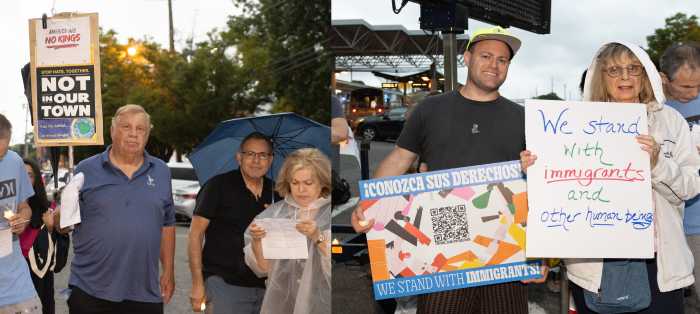Private or public? The free market or the government? Which one is it? Which one can provide the best health care? That’s the national issue that, sooner or later, will trickle down to every community and household in America. Why, I must ask, has this issue become a question of either/or? I mean, in of themselves, neither the free market nor the government is very good at addressing society’s needs and that’s the reality that has evaporated in the heart of polarization.
Free marketers, like the millionaire commentators on WABC talk radio, seem happy with the existing HMO-dominated healthcare system. They probably need to take a moment of silence for the thousands of Americans who have died as a result of medical malpractice facilitated by the bottom-line corporate mentality no less than the bottom-feeding lawyer mentality. They’ll never admit it, but left to their own devices, capitalists would outsource jobs, bring back the poverty-level wages of turn-of-the-century sweatshops, pollute the environment faster than you can say “Love Canal,” and pay corrupt officials to look the other way. Hundreds of thousands of workers have lost their jobs in this country while the compensation packages of CEOs have skyrocketed.
Advocates of socialized medicine like the NPR crowd down the dial need to volunteer weekends teaching the millions of functionally illiterate adults (who attended public school as children) how to read. They’ll deny it, but governmental agencies with no competition and the power to raise taxes (albeit, indirectly) have no incentive to provide the public with quality services: taxes go up even as schools fail, crime increases, and public services are cut back.
Pure capitalism and pure socialism don’t work: capitalists will always put self-interests ahead of the public good and socialists don’t understand that economic systems are too complex to be micro-managed by bureaucracy. We need the competition, profit incentive, and freedom-of-choice associated with the capitalist system. We also need government oversight to prevent these things from being subverted by greed and monopolistic practices. Unfortunately, the issue is dominated by propaganda rather than genuine debate because political ideologues have chosen to do battle over the hospital beds of the sick and dying.
All is not bleak, however. The one good thing that has come out of this issue is that for the first time in a very long time, people are using a lot of words that end in “ism.” People are starting to think about what’s important in life, what works, and what doesn’t work. I am reminded of what Philip Youtz, the director of the Brooklyn Museum, said in 1933 when he wrote, “In a time of financial famine, the public is forced to a reappraisal of all of its possessions, institutions, and customs.”
Paul Manton





























